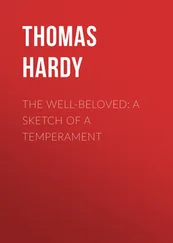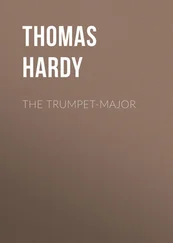Thomas Hardy - The Hand of Ethelberta - A Comedy in Chapters
Здесь есть возможность читать онлайн «Thomas Hardy - The Hand of Ethelberta - A Comedy in Chapters» — ознакомительный отрывок электронной книги совершенно бесплатно, а после прочтения отрывка купить полную версию. В некоторых случаях можно слушать аудио, скачать через торрент в формате fb2 и присутствует краткое содержание. Жанр: foreign_antique, foreign_prose, на английском языке. Описание произведения, (предисловие) а так же отзывы посетителей доступны на портале библиотеки ЛибКат.
- Название:The Hand of Ethelberta: A Comedy in Chapters
- Автор:
- Жанр:
- Год:неизвестен
- ISBN:нет данных
- Рейтинг книги:3 / 5. Голосов: 1
-
Избранное:Добавить в избранное
- Отзывы:
-
Ваша оценка:
- 60
- 1
- 2
- 3
- 4
- 5
The Hand of Ethelberta: A Comedy in Chapters: краткое содержание, описание и аннотация
Предлагаем к чтению аннотацию, описание, краткое содержание или предисловие (зависит от того, что написал сам автор книги «The Hand of Ethelberta: A Comedy in Chapters»). Если вы не нашли необходимую информацию о книге — напишите в комментариях, мы постараемся отыскать её.
The Hand of Ethelberta: A Comedy in Chapters — читать онлайн ознакомительный отрывок
Ниже представлен текст книги, разбитый по страницам. Система сохранения места последней прочитанной страницы, позволяет с удобством читать онлайн бесплатно книгу «The Hand of Ethelberta: A Comedy in Chapters», без необходимости каждый раз заново искать на чём Вы остановились. Поставьте закладку, и сможете в любой момент перейти на страницу, на которой закончили чтение.
Интервал:
Закладка:
The subject now flitted to the other end.
‘Somebody has it that when the heart flies out before the understanding, it saves the judgment a world of pains,’ came from a voice in that quarter.
‘I, for my part, like something merry,’ said an elderly woman, whose face was bisected by the edge of a shadow, which toned her forehead and eyelids to a livid neutral tint, and left her cheeks and mouth like metal at a white heat in the uninterrupted light. ‘I think the liveliness of those ballads as great a recommendation as any. After all, enough misery is known to us by our experiences and those of our friends, and what we see in the newspapers, for all purposes of chastening, without having gratuitous grief inflicted upon us.’
‘But you would not have wished that “Romeo and Juliet” should have ended happily, or that Othello should have discovered the perfidy of his Ancient in time to prevent all fatal consequences?’
‘I am not afraid to go so far as that,’ said the old lady. ‘Shakespeare is not everybody, and I am sure that thousands of people who have seen those plays would have driven home more cheerfully afterwards if by some contrivance the characters could all have been joined together respectively. I uphold our anonymous author on the general ground of her levity.’
‘Well, it is an old and worn argument – that about the inexpedience of tragedy – and much may be said on both sides. It is not to be denied that the anonymous Sappho’s verses – for it seems that she is really a woman – are clever.’
‘Clever!’ said Ladywell – the young man who had been one of the shooting-party at Sandbourne – ‘they are marvellously brilliant.’
‘She is rather warm in her assumed character.’
‘That’s a sign of her actual coldness; she lets off her feeling in theoretic grooves, and there is sure to be none left for practical ones. Whatever seems to be the most prominent vice, or the most prominent virtue in anybody’s writing is the one thing you are safest from in personal dealings with the writer.’
‘O, I don’t mean to call her warmth of feeling a vice or virtue exactly – ’
‘I agree with you,’ said Neigh to the last speaker but one, in tones as emphatic as they possibly could be without losing their proper character of indifference to the whole matter. ‘Warm sentiment of any sort, whenever we have it, disturbs us too much to leave us repose enough for writing it down.’
‘I am sure, when I was at the ardent age,’ said the mistress of the house, in a tone of pleasantly agreeing with every one, particularly those who were diametrically opposed to each other, ‘I could no more have printed such emotions and made them public than I – could have helped privately feeling them.’
‘I wonder if she has gone through half she says? If so, what an experience!’
‘O no – not at all likely,’ said Mr. Neigh. ‘It is as risky to calculate people’s ways of living from their writings as their incomes from their way of living.’
‘She is as true to nature as fashion is false,’ said the painter, in his warmth becoming scarcely complimentary, as sometimes happens with young persons. ‘I don’t think that she has written a word more than what every woman would deny feeling in a society where no woman says what she means or does what she says. And can any praise be greater than that?’
‘Ha-ha! Capital!’
‘All her verses seem to me,’ said a rather stupid person, ‘to be simply —
“Tral’-la-la-lal’-la-la-la’,
Tral’-la-la-lal’-la-la-lu’,
Tral’-la-la-lal’-la-la-lalla’,
Tral’-la-la-lu’.”
When you take away the music there is nothing left. Yet she is plainly a woman of great culture.’
‘Have you seen what the London Light says about them – one of the finest things I have ever read in the way of admiration?’ continued Ladywell, paying no attention to the previous speaker. He lingered for a reply, and then impulsively quoted several lines from the periodical he had named, without aid or hesitation. ‘Good, is it not?’ added Ladywell.
They assented, but in such an unqualified manner that half as much readiness would have meant more. But Ladywell, though not experienced enough to be quite free from enthusiasm, was too experienced to mind indifference for more than a minute or two. When the ladies had withdrawn, the young man went on —
‘Colonel Staff said a funny thing to me yesterday about these very poems. He asked me if I knew her, and – ’
‘Her? Why, he knows that it is a lady all the time, and we were only just now doubting whether the sex of the writer could be really what it seems. Shame, Ladywell!’ said his friend Neigh.
‘Ah, Mr. Ladywell,’ said another, ‘now we have found you out. You know her!’
‘Now – I say – ha-ha!’ continued the painter, with a face expressing that he had not at all tried to be found out as the man possessing incomparably superior knowledge of the poetess. ‘I beg pardon really, but don’t press me on the matter. Upon my word the secret is not my own. As I was saying, the Colonel said, “Do you know her?” – but you don’t care to hear?’
‘We shall be delighted!’
‘So the Colonel said, “Do you know her?” adding, in a most comic way, “Between U. and E., Ladywell, I believe there is a close affinity” – meaning me, you know, by U. Just like the Colonel – ha-ha-ha!’
The older men did not oblige Ladywell a second time with any attempt at appreciation; but a weird silence ensued, during which the smile upon Ladywell’s face became frozen to painful permanence.
‘Meaning by E., you know, the “E” of the poems – heh-heh!’ he added.
‘It was a very humorous incident certainly,’ said his friend Neigh, at which there was a laugh – not from anything connected with what he said, but simply because it was the right thing to laugh when Neigh meant you to do so.
‘Now don’t, Neigh – you are too hard upon me. But, seriously, two or three fellows were there when I said it, and they all began laughing – but, then, the Colonel said it in such a queer way, you know. But you were asking me about her? Well, the fact is, between ourselves, I do know that she is a lady; and I don’t mind telling a word – ’
‘But we would not for the world be the means of making you betray her confidence – would we, Jones?’
‘No, indeed; we would not.’
‘No, no; it is not that at all – this is really too bad! – you must listen just for a moment – ’
‘Ladywell, don’t betray anybody on our account.’
‘Whoever the illustrious young lady may be she has seen a great deal of the world,’ said Mr. Doncastle blandly, ‘and puts her experience of the comedy of its emotions, and of its method of showing them, in a very vivid light.’
‘I heard a man say that the novelty with which the ideas are presented is more noticeable than the originality of the ideas themselves,’ observed Neigh. ‘The woman has made a great talk about herself; and I am quite weary of people asking of her condition, place of abode, has she a father, has she a mother, or dearer one yet than all other.’
‘I would have burlesque quotation put down by Act of Parliament, and all who dabble in it placed with him who can cite Scripture for his purposes,’ said Ladywell, in retaliation.
After a pause Neigh remarked half-privately to their host, who was his uncle: ‘Your butler Chickerel is a very intelligent man, as I have heard.’
‘Yes, he does very well,’ said Mr. Doncastle.
‘But is he not a – very extraordinary man?’
‘Not to my knowledge,’ said Doncastle, looking up surprised. ‘Why do you think that, Alfred?’
Читать дальшеИнтервал:
Закладка:
Похожие книги на «The Hand of Ethelberta: A Comedy in Chapters»
Представляем Вашему вниманию похожие книги на «The Hand of Ethelberta: A Comedy in Chapters» списком для выбора. Мы отобрали схожую по названию и смыслу литературу в надежде предоставить читателям больше вариантов отыскать новые, интересные, ещё непрочитанные произведения.
Обсуждение, отзывы о книге «The Hand of Ethelberta: A Comedy in Chapters» и просто собственные мнения читателей. Оставьте ваши комментарии, напишите, что Вы думаете о произведении, его смысле или главных героях. Укажите что конкретно понравилось, а что нет, и почему Вы так считаете.












